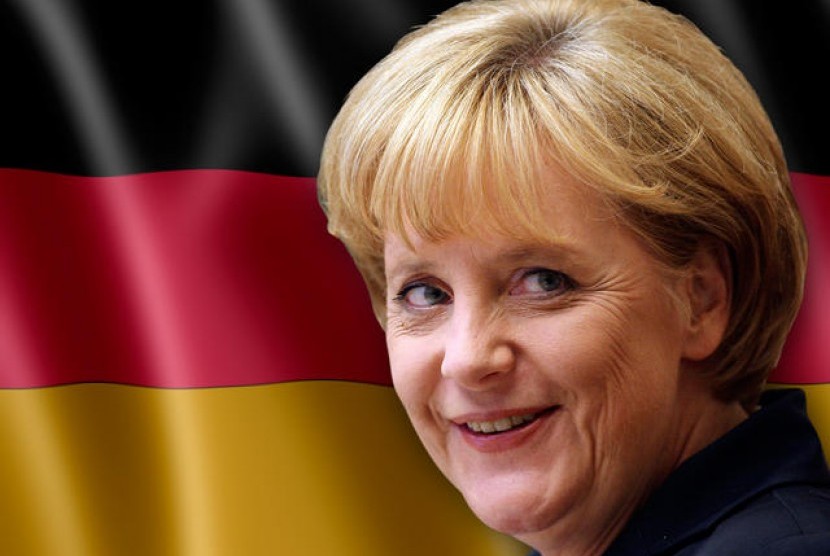REPUBLIKA.CO.ID, BERLIN -- Chancellor Angela Merkel's conservatives and their coalition partner, the center-left Social Democratic Party (SPD), unveiled their picks for the new cabinet on Sunday, which will be sworn into office with Merkel serving the post of chancellor in a third term.
Merkel confirmed widely circulated media reports that she named Ursula von der Leyen to be the country's first female defence minister, while incumbent Defence Minister Thomas de Maiziere will head the Interior Ministry.
CDU veteran Wolfgang Schaeuble, who joined hands with the chancellor in Germany's efforts to fight the eurozone debt crisis, will remain as finance minister.
Merkel's other cabinet picks for her CDU party include Hermann Groehe who will serve as Health Minister, Johanna Wanka who will stay as Education Minister, and Peter Altmaier as her chief of staff.
Earlier on Sunday, CDU's Bavarian sister party, the Christian Social Union (CSU), also announced its cabinet members of a grand coalition under Chancellor Merkel.
Negotiators of earlier coalition talks had said the CDU and the SPD will get six ministerial posts each, and the CSU will take three.
The three CSU posts of agriculture, transport as well as economic cooperation and development will be taken by Hans-Peter Friedrich, Alexander Dobrindt, Gerd Mueller respectively.
Earlier in the day, the center-left SPD party also briefed media about its cabinet members.
The SPD will take the six posts of economy and energy, foreign affairs, labor, environment, justice and families, party leader Sigmar Gabriel said at a press conference in Berlin.
Gabriel will be the minister of a new Economy and Energy Ministry and take responsibility for Germany's ambitious plan of energy transformation from nuclear power to green energy.
Frank-Walter Steinmeier is back at the foreign ministry. He served in that post from 2005-2009 under Merkel.
The SDP will also take the labor, environment, justice, families portfolios, said Gabriel. Andrea Nahles, Barbara Hendricks, Heiko Maas and Manuela Schwesig will take responsibilities for the posts respectively.
Party leaders will formally sign the coalition agreement on Monday. Merkel will be reelected chancellor in a vote in the lower house of parliament on Tuesday and the new coalition will then be sworn into office to rule Europe's biggest economy for the next four years.
The establishment of the coalition government put an end to more than two months of political limbo after the Sept. 22 elections when Merkel's CDU and CSU bloc proved to be the biggest winner with 41.5 percent of votes, while the SPD took 25.7 percent.
Without a majority of the parliament seats, the CDU/CSU bloc had to form a coalition with the center-left SPD as in Merkel's 2005-2009 first term. Such a grand coalition is supported by most Germans, as a poll for public broadcaster ZDF published Friday showed that 49 percent of Germans welcome a grand coalition while 33 percent opposed it.
The coalition government was able to become a reality on Friday as a majority of the SPD members backed the proposed coalition deal in a binding vote within the party.
However, some SPD members harbor skepticism on becoming Merkel's junior partner again. The party suffered a electoral defeat in 2009 after serving as Merkel's junior coalition party in her first term.


